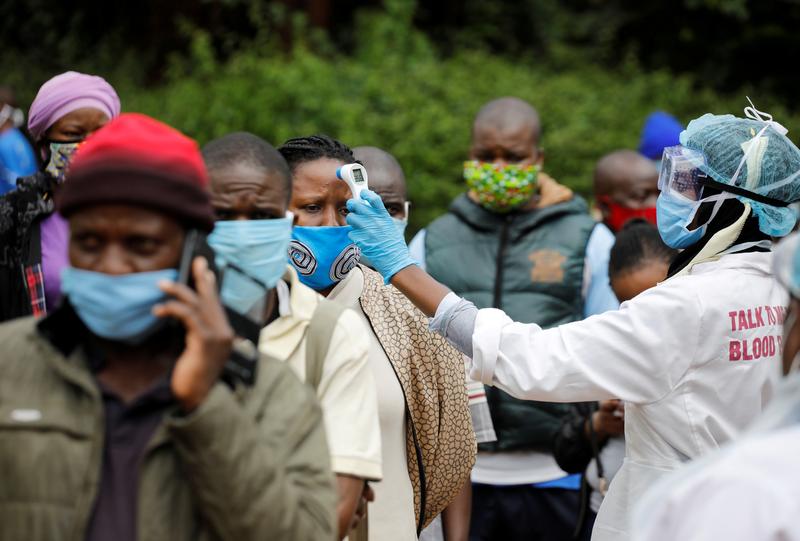The African continent surpassed the 2.2 million mark for COVID-19 cases on Monday according to the World Health Organisation (WHO).
The Organisation also says that recoveries stand at over 1.9 million with deaths exceeding 53 000.
Over 2.2 million confirmed #COVID19 cases on the African continent – with more than 1.9 million recoveries & 53,000 deaths cumulatively.
View country figures & more with the WHO African Region COVID-19 Dashboard: https://t.co/FKav40Cbdd pic.twitter.com/oSoy6ieF44
— WHO African Region (@WHOAFRO) December 7, 2020
South Africa has recorded the most cases on the continent with 817 878 with 3 313 new cases identified in the last 24 hours. The country also has the most COVID-19 related deaths at over 22 000.
Morocco has the second-highest number of cases in Africa with close to 380 000.
Island nation Seychelles has the lowest confirmed cases on the continent with 182 cases and zero deaths from COVID-19.
Eritrea is the other country in Africa that has recorded zero COVID-19 related deaths.
WHO launches AIRA
On Thursday last week, WHO launched a new alliance, the Africa Infodemic Response Alliance (AIRA), to coordinate actions and pool resources in combating misinformation around the COVID-19 pandemic and other health emergencies in Africa.
In a statement, the WHO says digital platforms have been inundated with COVID-19-related information since the pandemic began in late 2019.
Information about the virus has been shared and viewed over 270 billion times online and mentioned almost 40 million times on Twitter and web-based news sites in the 47 countries of the WHO African Region between February and November 2020, according to UN Global Pulse, the United Nations’ Secretary-General’s initiative on big data and artificial intelligence.
A large proportion of this information is inaccurate and misleading and continues to be shared by social media users intentionally or unknowingly every day.
The COVID-19 infodemic is amplified online through social media but health misinformation is also circulating offline.
Measuring precisely how much of what is circulating is misinformation is difficult, but fact-checking organisations in Africa say they have debunked more than 1000 of such misleading reports since the onset of the pandemic. Some of the widely shared misinformation include conspiracies around unproven treatments, false cures and anti-vaccine messages.
WHO Regional Director for Africa, Dr Matshidiso Moeti says, “In health emergencies, misinformation can kill and ensure diseases continue to spread. People need proven, science-based facts to make informed decisions about their health and wellbeing, and a glut of information – an infodemic – with misinformation in the mix makes it hard to know what is right and real. This crucial new alliance brings unique reach, knowledge and skills to help stop the impact of dangerous misinformation.”


